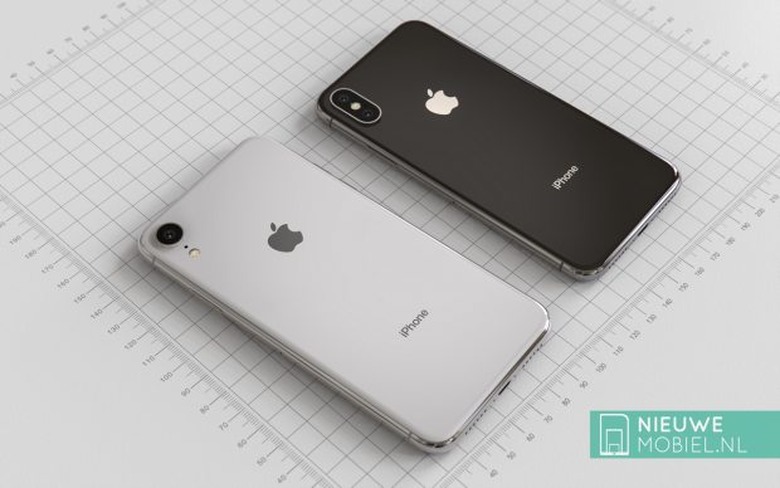Apple's 2018 iPhone X Could Be A Big Headache For Mobile Carriers
As excited as consumers might be for the next iPhone, mobile carriers might be in for a nasty surprise. As Barron's notes, Apple might debut an eSIM chip in its next iPhone models. If you've ever switched cell carriers (or have even a passing knowledge of smartphones), you've probably heard of SIM cards. These plastic cards fit into a tray that slides into your phone and allow cell towers to identify your phone. Without one, you can't get service.
The eSIM, on the other hand, is a chip that is actually soldered to the circuit board of the phone before it ever leaves the factory. In addition to eliminating the need for a SIM tray, the eSIM can be programmed over the air, rather than requiring consumers to visit a carrier store to swap out their SIM cards.
From a consumer standpoint, this would be an incredible asset. But carriers are less than thrilled. With an eSIM on board, consumers would be able to switch between carriers at will with little effort. The hassle of replacing a physical part of your phone in order to move from Verizon to AT&T (for example) would be gone. All the consumer would need to do would be to sign up for service and await automatic activation from the carrier.
If Apple were to adopt the eSIM for what is sure to be the biggest phone in the world this fall, it could signal the end of the current relationship between carriers and subscribers. If activation is little more than a phone call or a button press away, consumers might be inclined to buy the hardware first and then make a decision about which carrier to choose later. In simpler terms, carriers would begin to lose control, which must terrify them.
It's worth noting that Apple is already using eSIM technology in Apple Watch Series 3 cellular models, so the idea of the chip making its way into the newest iPhone models doesn't seem like much of a stretch.
